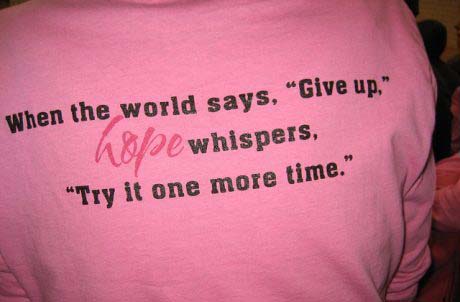The Psychology of Hope in the Second Half of Life

I’ve written previously on the psychology of hope, but this post focuses on the meaning of hope, and the impact of hope on midlife and older individuals.

What is this elusive thing called hope, and what is the impact of hope, and its opposite, despair, for those on the second half of their life journey? Why is hope absolutely crucial to those who face difficulties or obstacles in the mid-life transition or later in life?
Hope is Not an Effervescent Feeling
Real hope is not the excited feeling that children feel on Christmas Eve. It’s not that kind of fleeting emotional state. Mature adult hope combines thinking and feeling. As Dr. Shane Lopez put it, hope is “…where transcendence meets reason and caution meets passion.”
Hope and Basic Trust
Erik Eriksen saw hope as fundamentally related to the development of basic trust in life, which stems from experience as a child getting adequate, warm and appropriate care.
Hope rests on basic trust in our lives, and on deep awareness that something is moving in our lives, and seeking to actualize itself, to become in our lives.
How do we act in such a way as to create hope?
Hope and its Shadow
A famous study by social psychologist Prof. Leon Festinger et al. documents a UFO cult whose prophet predicted the end of the world, and that, just prior, aliens would take the faithful away to another, better place. The group sold all their worldly possessions, and, on the appointed night, waited for the saucers. Unfortunately, there was no apocalypse; the saucers did not spirit them away. There they stood, realizing that the prophecies were unfulfilled. The groups’ conclusion? Not that their faith and hope was misplaced, but that their faith had saved the world!
This is delusory hope, hope that does not serve the lives of those who hope. In fact, such hope hurt them, by avoiding the real facts of life and realities of human existence. Especially in major life transitions, we need discernment to avoid delusion, which is the shadow of hope.
Hope and Resilience
How Can I Actualize My Hope?
Depth case studies knows that, at midlife, or in the second half of life, I need positive, valid, real hope. I need to actualize it in my life. How can I do that?
Hope has a social dimension. Spending time with other hopeful people undoubtedly increases our own hope. Hope also relates to increasing one’s sense of basic trust in life. It also entails seeing and dealing with our core selves in a fundamentally compassionate way, enabling trust in the meaning and direction of our own individual lives. As we discover meaning and value in our individual lives, and awareness of how life might be calling us, we experience a growing sense of hope. In the words of Jungian analyst James Hollis,
“And they will say that I am hopeless, and I will say that I am filled with hope, remembering Eliot’s admonition to beware of what we hope for…. I am filled with hope, that, around the next corner, the new and unexpected will cause me to reinvent myself, revise my way of seeing, and take me back to the point of beginning, which is awe, which is wonder, which is curiosity… and which is [enduring] summons to stay in the fight.”
It is towards this vital, flexible, living hope, free from both cynicism and delusion, that working on oneself through /a-midlife-transition, especially in the second half of life, aims.
Brian Collinson, Registered Psychotherapist & Jungian Psychoanalyst
[cta]
